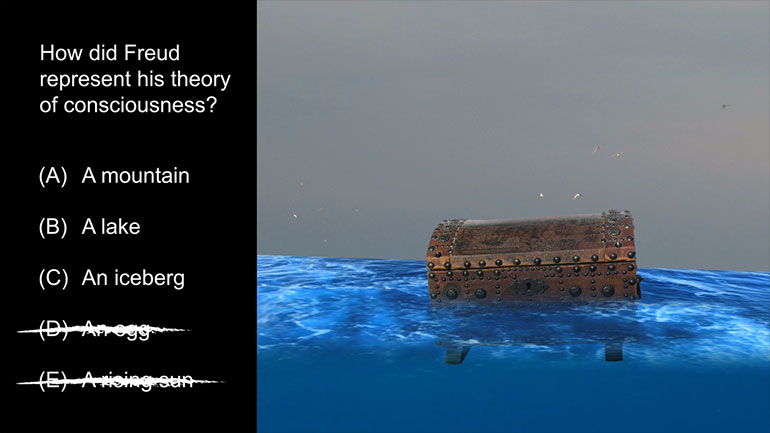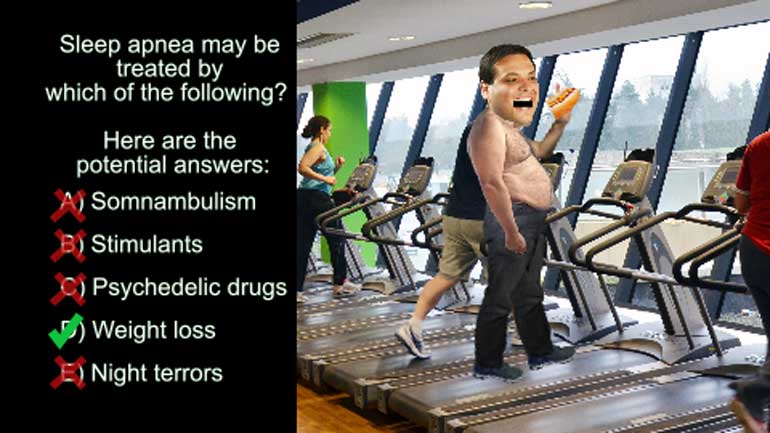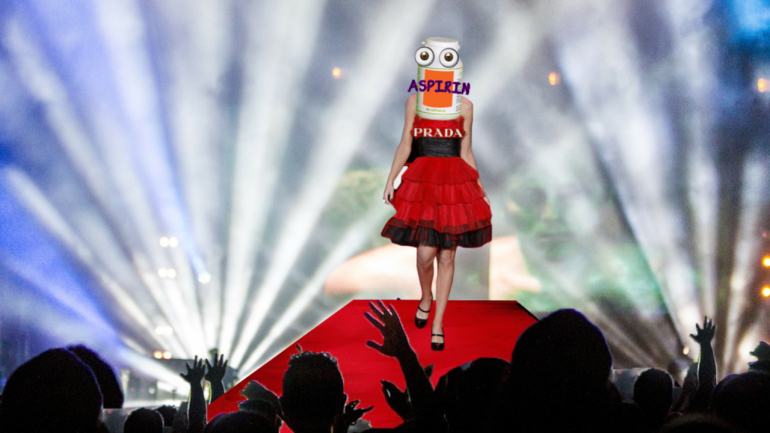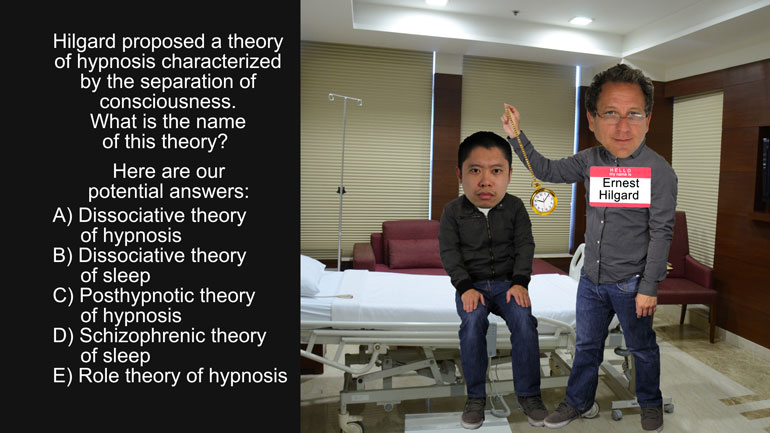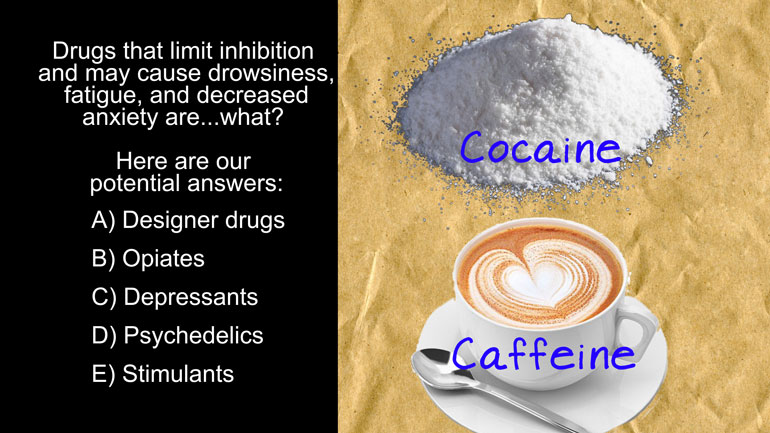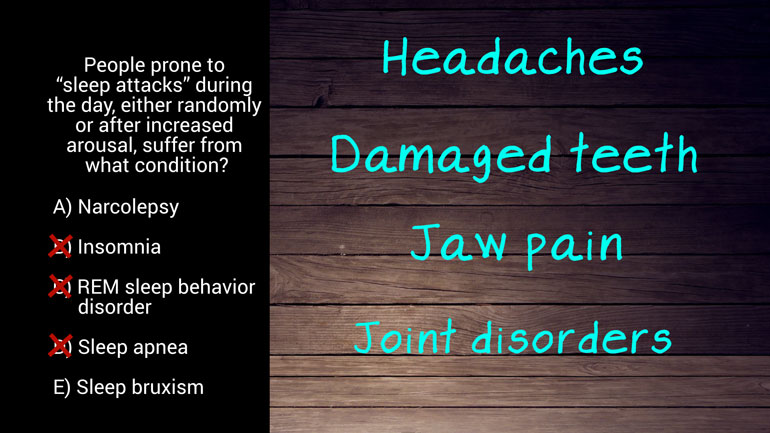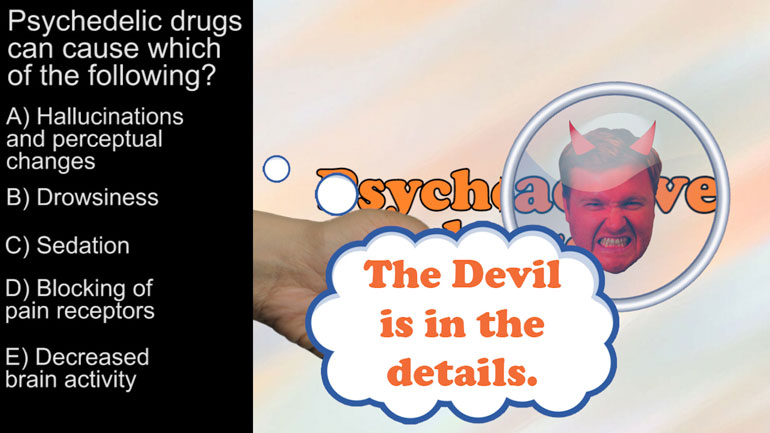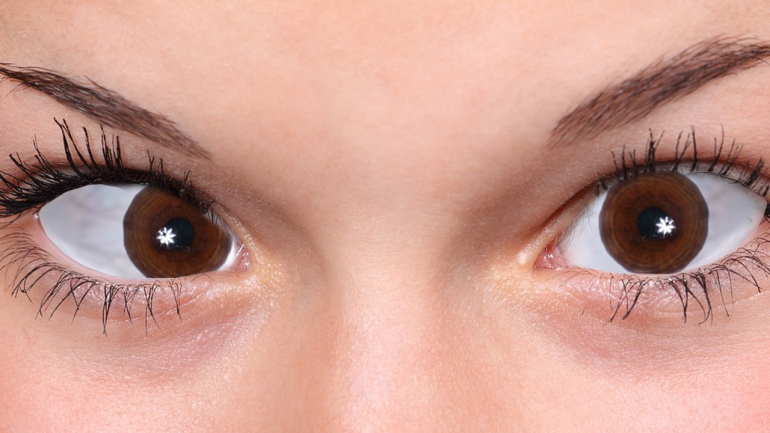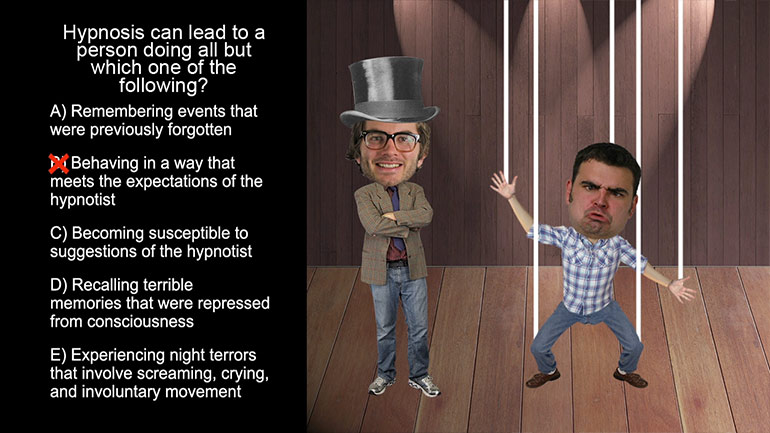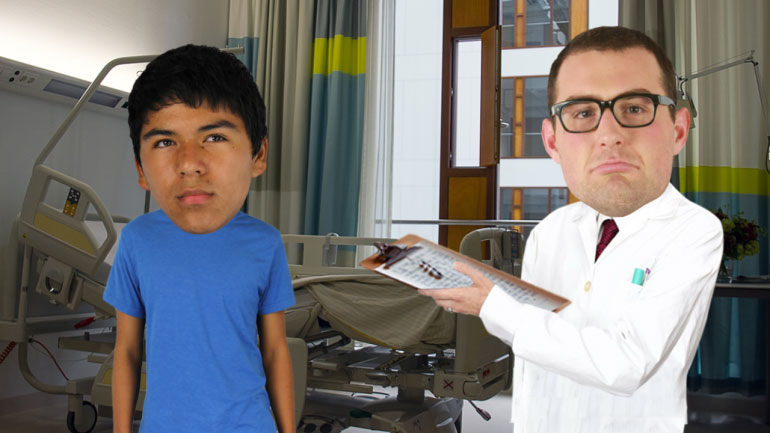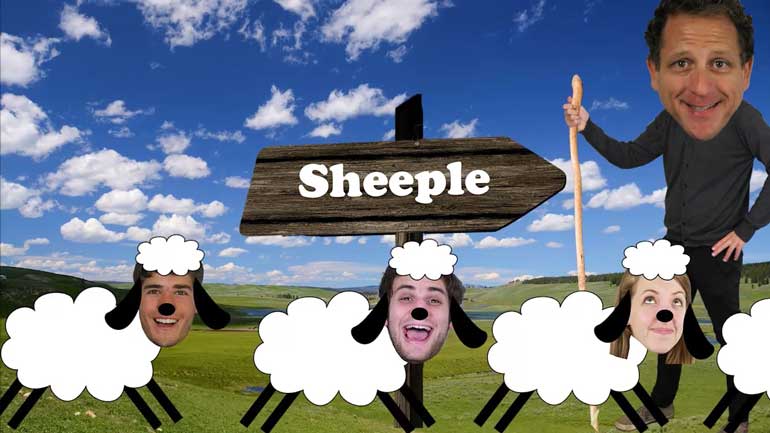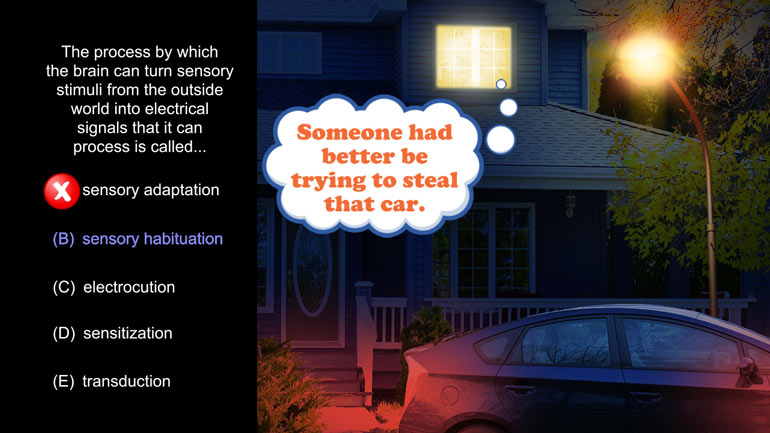ShmoopTube
Where Monty Python meets your 10th grade teacher.
Search Thousands of Shmoop Videos
States of Consciousness Videos 13 videos
AP Psychology 1.1 States of Consciousness. Who conducted research on REM sleep deprivations?
AP Psychology 3.2 States of Consciousness. Which brain structure acts as the bodies internal clock?
AP Psychology 3.4 States of Consciousness. Which of the following metaphors did Freud use to represent his theory of consciousness?
AP Psychology 1.1 States of Consciousness 86 Views
Share It!
Description:
AP Psychology 1.1 States of Consciousness. Who conducted research on REM sleep deprivations?
Transcript
- 00:00
Thank you We sneak And here's your shmoop du jour
- 00:06
brought to you by rapid eye movement or r e
- 00:08
m not the same thing as shifty eye movement a
- 00:11
k something you really shouldn't do in a police lineup
- 00:14
Okay here's our question which had falling scientists conducted research
Full Transcript
- 00:18
that led to our understanding of the effects of ram
- 00:20
sleep deprivations on here A potential answers for stuff comes
- 00:25
freud who were sure you know for his work in
- 00:27
psycho analysis the unconscious the ego super ego in about
- 00:31
a million other things with varying degrees of weird sexual
- 00:33
nous attached to him But he's also well known for
- 00:36
his work on dream analysis In short freud believed dreams
- 00:39
aim to keep the sleeper asleep by fulfilling all of
- 00:42
their wishes that would otherwise awaken them Weird yes but
- 00:46
we expect nothing less from freud Still he's not our
- 00:48
answer John allen hobson and robert mccarley meanwhile are best
- 00:53
known for their research on rapid eye movement sleep and
- 00:55
their theory explaining the cause of dreams The two essentially
- 00:59
argue that dreams are vaguely cohesive narratives formed by the
- 01:03
brain as a response to the activation of biochemical an
- 01:06
electrical charges that occurred during sleep called the activation synthesis
- 01:10
theory it directly opposes the aforementioned freudian view and instead
- 01:14
suggest the dreams are for the most part random thinks
- 01:17
this simply is the brain's effort to synthesize the random
- 01:19
signals triggered during rem sleep But it doesn't deal with
- 01:22
sleep deprivation so it doesn't fit the bill Ernest hartman
- 01:25
however harks back to a more freddie and understanding of
- 01:28
dreams A psychoanalyst himself hartman emphasized dreams as a mode
- 01:32
of connection making He thought that dreams carried meaning were
- 01:36
useful in therapy and ultimately served in drawing connections between
- 01:40
memories and experiences We consciously would not still nothing to
- 01:44
a sleep deprivation So he's not our dream answer That
- 01:49
leaves us with a william charles dement a sleep researcher
- 01:53
best known for his focus on sleep deprivation sleep disorders
- 01:57
sleep apnea and narcolepsy Well dement conducted research in which
- 02:01
he prevented participants from experiencing a full cycle of rem
- 02:04
sleep and then examining what happened to their sleep cycles
- 02:08
He found that immediately after being deprived of ram cycle
- 02:11
sleep the participants cycles increased from ninety minutes to one
- 02:14
hundred twenty minutes Funny we had a dream That was
- 02:17
the right answer right before ah mellower Yellow word dream 00:02:21.51 --> [endTime] interrupted
Related Videos
AP Psychology 2.2 Social Psychology. Which of the following was an independent variable manipulated in Asch's research?
AP Psychology 1.1 Personality. According to Freud, these three parts of personality are constantly in conflict.
AP Psychology 1.1 Sensation and Perception. The process by which the brain can turn sensory stimuli from the outside world into electrical signals...
AP Psychology 1.1 Social Psychology. Which of the following best describes social psychology?
AP Psychology 1.2 Cognition. Which of the following strategies would work best for generating new ideas?


